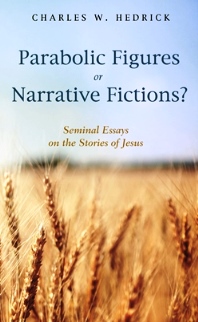"A null hypothesis is a type of hypothesis used in statistics that proposes that no statistical difference exists in a set of given observations. The null hypothesis attempts to show no variation exists between variables, or that a single variable is no different than zero. It is presumed to be true until statistical evidence nullifies it for an alternative."
http://www.investopedia.com/terms/n/null_hypothesis.asp
As I understand it: the null hypothesis is the point where discussion bogged down in responses to my last blog (June 25, 2016): Gene suggested that we might be mired in a null hypothesis—that is to say, it is just as plausible to believe in spirits as not to believe in them. He asked Jim to suggest a scientific study showing that not believing in spirits is a more reasonable position than accepting that there were such entities as spirits. In this brief essay I will try to move us forward by attempting to show that it is more plausible to attribute the effects of illness, disease, and mental abnormalities to natural causes than to possession by unseen spirits.
In the common tradition shared by Matthew, Mark, and Luke the three evangelists report the same story, each in his own way. The current generally-accepted theory of their relationship is that Mark wrote first, and then Mark's narrative was used as a source independently by Mathew and Luke. Mark (9:14-29) recounts that a boy, possessed by a mute spirit (9:17, i.e., a spirit causing muteness), was brought to the disciples who could not "cast it out" (9:18). The description of the spirit's effect on the boy is frightening (9:20-22). Jesus casts the spirit out, adding that it was also a spirit causing deafness (9:25-26). Luke's narrative (9:37-43a) is shorter and attributes the boy's ailment simply to "a spirit" (9:38), which later turns out to be "an unclean spirit" (9:42), which Jesus "rebukes and heals the boy" (9:42).
Matthew's narrative (17:14-21) is also shorter than Mark and adds that the boy is an epileptic (17:15) and, more to the point, describes his epilepsy as caused by a demon (17:18), which Jesus rebukes and cures the boy. The word translated epilepsy is literally translated "moon struck," for "in the ancient world epileptic seizure was associated with the transcendent powers of the moon."* Matthew gives the disease its "proper" medical term for antiquity, but regards epilepsy as a disease caused by demon possession.
Today the medical profession (and most of the Western world) does not regard epilepsy as caused by demon possession. In the 21st century epilepsy is thought to be "caused by abnormal activity in brain cells": The Mayo Clinic
http://www.mayoclinic.org/diseases-conditions/epilepsy/symptoms-causes/dxc-20117207
Medical practitioners have shown that it is more effective to treat epilepsy with medication than it is to subject a patient to an exorcism:
http://www.mayoclinic.org/diseases-conditions/epilepsy/diagnosis-treatment/treatment/txc-20117241
The history of the diagnosis and treatment of epilepsy, which brings the rational world to a medical explanation for epilepsy, is anything but reassuring. The stigma attached to epilepsy lasted well into the 1990s and its treatment has not always been competent: A brief history of epilepsy:
http://nawrot.psych.ndsu.nodak.edu/courses/465Projects05/epilepsy/History.htm
Hence, I offer this single statistic, a single variable: that is, epilepsy responds to medical treatment. This datum shows, conclusively in my judgment, that believing epilepsy is caused by evil spirits is a flawed perception of reality and may very well be dangerous to the welfare of those afflicted with epilepsy if their immediate caregivers persist in believing that epilepsy is caused by evil spirits. While it is only a single variable, I suggest that the number of variables will greatly multiply if one makes a study of other illness and diseases, previously thought to be caused by evil spirits, which with the advent of modernity have been shown to be the result of natural causes.
Nevertheless, not all who live in the 21st century are really completely a part of the 21st century, and persist in the belief of evil spirits. A case in point is Dr. Richard Gallagher, a board-certified psychiatrist, who is described as a professor of clinical psychiatry at New York Medical College. Mr. Gallagher seems clearly to believe in demon possession.
http://wapo.st/293X0vb?tid=ss_mails Has Mr. Gallagher matched my single variable with multiple variables of his own? If so, we are still mired in the null hypothesis—that is to say, because of Mr. Gallagher's testimony about exorcising evil spirits, it is as reasonable to seek help from exorcists for illness, disease, and mental abnormalities, as it is to seek help from medical professionals.
Where do you come down on this statement: exorcism and medical treatment are two equally valid ways of treating epilepsy?
Charles W. Hedrick
Professor Emeritus
Missouri State University
*F. W. Danker and Walter Bauer, A Greek-English Lexicon of the New Testament and other Early Christian Literature (3rd ed.; Chicago and London: University of Chicago, 2000), 919.

